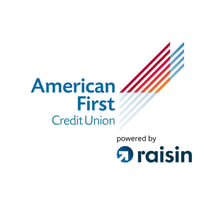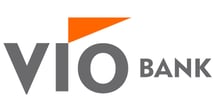With a money market account (MMA), you'll get a high interest-bearing bank account that shares some of the best features of a checking and savings account. Opening a money market account is a fast way to earn money while you're saving for shorter-term goals. Here are our expert picks for the best money market accounts.
Show Best Offers Available in
| Offer | APY | Minimum to Earn APY | Fees | Next Steps | |
|---|---|---|---|---|---|

Member FDIC.
Rating image, 4.50 out of 5 stars.
4.50/5
Our ratings are based on a 5 star scale.
5 stars equals Best.
4 stars equals Excellent.
3 stars equals Good.
2 stars equals Fair.
1 star equals Poor.
We want your money to work harder for you. Which is why our ratings are biased toward offers that deliver versatility while cutting out-of-pocket costs.
Rating image, 4.50 out of 5 stars.
4.50/5
Our ratings are based on a 5 star scale.
5 stars equals Best.
4 stars equals Excellent.
3 stars equals Good.
2 stars equals Fair.
1 star equals Poor.
We want your money to work harder for you. Which is why our ratings are biased toward offers that deliver versatility while cutting out-of-pocket costs.
|
APY:
4.00%-4.05%
Rate info
4.00% applies to balances under $100K, Need $100,000+ to earn 4.05%
|
Minimum To Earn APY:
$0.01-$100,000 for 4.00%; $100,000+ for 4.05%
|
Monthly Fee: $0 Monthly Fee:
$0
Min. Balance: $2,500 to open, no min balance to maintain |
Min. Balance:
$2,500 to open, no min balance to maintain
|
|

Federally insured by NCUA.
Rating image, 4.75 out of 5 stars.
4.75/5
Our ratings are based on a 5 star scale.
5 stars equals Best.
4 stars equals Excellent.
3 stars equals Good.
2 stars equals Fair.
1 star equals Poor.
We want your money to work harder for you. Which is why our ratings are biased toward offers that deliver versatility while cutting out-of-pocket costs.
Rating image, 4.75 out of 5 stars.
4.75/5
Our ratings are based on a 5 star scale.
5 stars equals Best.
4 stars equals Excellent.
3 stars equals Good.
2 stars equals Fair.
1 star equals Poor.
We want your money to work harder for you. Which is why our ratings are biased toward offers that deliver versatility while cutting out-of-pocket costs.
|
APY:
5.24%
|
Minimum To Earn APY:
$1
|
Monthly Fee: $0 Monthly Fee:
$0
Min. Balance: $1 |
Min. Balance:
$1
|
|

Member FDIC.
Rating image, 4.75 out of 5 stars.
4.75/5
Our ratings are based on a 5 star scale.
5 stars equals Best.
4 stars equals Excellent.
3 stars equals Good.
2 stars equals Fair.
1 star equals Poor.
We want your money to work harder for you. Which is why our ratings are biased toward offers that deliver versatility while cutting out-of-pocket costs.
Rating image, 4.75 out of 5 stars.
4.75/5
Our ratings are based on a 5 star scale.
5 stars equals Best.
4 stars equals Excellent.
3 stars equals Good.
2 stars equals Fair.
1 star equals Poor.
We want your money to work harder for you. Which is why our ratings are biased toward offers that deliver versatility while cutting out-of-pocket costs.
|
APY:
5.30%
|
Minimum To Earn APY:
$0
|
Monthly Fee: $0 Monthly Fee:
$0
Min. Balance: $100 |
Min. Balance:
$100
|
|

Pacific Western Bank Money Market Deposit Account
Member FDIC.
Rating image, 4.75 out of 5 stars.
4.75/5
Our ratings are based on a 5 star scale.
5 stars equals Best.
4 stars equals Excellent.
3 stars equals Good.
2 stars equals Fair.
1 star equals Poor.
We want your money to work harder for you. Which is why our ratings are biased toward offers that deliver versatility while cutting out-of-pocket costs.
Rating image, 4.75 out of 5 stars.
4.75/5
Our ratings are based on a 5 star scale.
5 stars equals Best.
4 stars equals Excellent.
3 stars equals Good.
2 stars equals Fair.
1 star equals Poor.
We want your money to work harder for you. Which is why our ratings are biased toward offers that deliver versatility while cutting out-of-pocket costs.
|
APY:
5.27%
|
Minimum To Earn APY:
$1
|
Monthly Fee: $0 Monthly Fee:
$0
Min. Balance: $1 |
Min. Balance:
$1
|
|

Member FDIC.
Rating image, 5.00 out of 5 stars.
5.00/5
Our ratings are based on a 5 star scale.
5 stars equals Best.
4 stars equals Excellent.
3 stars equals Good.
2 stars equals Fair.
1 star equals Poor.
We want your money to work harder for you. Which is why our ratings are biased toward offers that deliver versatility while cutting out-of-pocket costs.
Rating image, 5.00 out of 5 stars.
5.00/5
Our ratings are based on a 5 star scale.
5 stars equals Best.
4 stars equals Excellent.
3 stars equals Good.
2 stars equals Fair.
1 star equals Poor.
We want your money to work harder for you. Which is why our ratings are biased toward offers that deliver versatility while cutting out-of-pocket costs.
|
APY:
4.40%
|
Minimum To Earn APY:
$1
|
Monthly Fee: $0 Monthly Fee:
$0
Min. Balance: $0 |
Min. Balance:
$0
|
|

Member FDIC.
Rating image, 5.00 out of 5 stars.
5.00/5
Our ratings are based on a 5 star scale.
5 stars equals Best.
4 stars equals Excellent.
3 stars equals Good.
2 stars equals Fair.
1 star equals Poor.
We want your money to work harder for you. Which is why our ratings are biased toward offers that deliver versatility while cutting out-of-pocket costs.
Rating image, 5.00 out of 5 stars.
5.00/5
Our ratings are based on a 5 star scale.
5 stars equals Best.
4 stars equals Excellent.
3 stars equals Good.
2 stars equals Fair.
1 star equals Poor.
We want your money to work harder for you. Which is why our ratings are biased toward offers that deliver versatility while cutting out-of-pocket costs.
|
APY:
4.75%
|
Minimum To Earn APY:
$0
|
Monthly Fee: $0 Monthly Fee:
$0
Min. Balance: $0 |
Min. Balance:
$0
|
|

Member FDIC.
Rating image, 4.00 out of 5 stars.
4.00/5
Our ratings are based on a 5 star scale.
5 stars equals Best.
4 stars equals Excellent.
3 stars equals Good.
2 stars equals Fair.
1 star equals Poor.
We want your money to work harder for you. Which is why our ratings are biased toward offers that deliver versatility while cutting out-of-pocket costs.
Rating image, 4.00 out of 5 stars.
4.00/5
Our ratings are based on a 5 star scale.
5 stars equals Best.
4 stars equals Excellent.
3 stars equals Good.
2 stars equals Fair.
1 star equals Poor.
We want your money to work harder for you. Which is why our ratings are biased toward offers that deliver versatility while cutting out-of-pocket costs.
|
APY:
3.75%-4.75%
Rate info
4.50% is one-year promotional rate. After it expires, the following rates and deposit tiers apply: $100,000 and up: 4.15% ongoing APY
$50,000 - $99,999.99: 4.05% ongoing APY
$25,000 - $49,999.99: 3.75% ongoing APY
$10,000 - $24,000.00: 3.75% ongoing APY
$0 - $9,999.99: 3.75% ongoing APY
|
Minimum To Earn APY:
$0 for minimum APY
|
Monthly Fee: $0 Monthly Fee:
$0
Min. Balance: $0 |
Min. Balance:
$0
|
Best money market rates for April 2024:
Current money market rates have reached over 5% APY, some of the highest we've seen in quite some time, thanks to today's rate environment. Here are our experts' top picks for the best money market accounts, ordered by highest APY:
- 5.30% APY: Vio Bank Cornerstone Money Market Savings
- 5.24% APY: American First Credit Union Money Market Deposit Account from Raisin
- 5.27% APY: Pacific Western Bank Money Market Deposit Account
- 4.75% APY: Sallie Mae Money Market
- 4.40% APY: Ally Money Market Account
- 4.00%-4.05% APY: Discover® Money Market
- 3.75%-4.75% APY: EverBank Yield Pledge Money Market Account
A closer look at our best money market accounts:
Show Best Offers Available in
Discover® Money Market

- Competitive APY
- No minimum balance to maintain account
- No monthly fee
- Debit card and check availability
- FDIC insured
- Required balance to open is a little high
- Best rate requires at least $100,000
- No in-person banking/branches
This account offers a competitive APY, especially given there are no monthly service fees, while still giving access to ATMs and checks. The minimum balance to open the account may be a little high for some folks, but you don't need to maintain a high balance to earn a good rate.
American First Credit Union Money Market Deposit Account from Raisin

- High APY
- No account fees
- An unlimited number of deposits and withdrawals
- NCUA insured
- Deposits and withdrawals can only be conducted via ACH transfer to/from an external bank account (limit to one linked external account)
- No checking accounts offered through Raisin
- Limited customer service hours
- Cannot link Raisin accounts to third-party apps (e.g. personal budgeting apps)
- No branch access; online only
American First Credit Union is a 70-year old credit union with nearly $1 billion in assets and insurance from the NCUA. The American First Credit Union powered by Raisin could be a great choice if you're looking for a high APY savings product. It offers a higher APY than you'd get when opening an account directly through the credit union, plus you get access to Raisin's savings marketplace and easy account management. On the other hand, accounts through Raisin do not offer branch access and limit you to using one account to transfer money in and out of the money market account.
Vio Bank Cornerstone Money Market Savings

- Competitive interest rates
- No monthly fee with electronic statements
- Low minimum
- No debit card or check-writing privileges
- No physical branches
- No ATM network
Vio Bank is the online bank division of MidFirst Bank, the largest privately held bank in the United States and an FDIC member. It offers a competitive rate for its Money Market Savings Account and no monthly fees as long as you agree to electronic statements. There is a $100 minimum deposit with this account and it is FDIC insured.
The online bank has no physical branches and no ATM network. This makes accessing cash on the go a little more difficult. The online bank does not offer a checking account so you are limited to only a few products in its lineup.
Pacific Western Bank Money Market Deposit Account

- High APY
- No account fees
- An unlimited number of deposits and withdrawals
- FDIC insured
- Deposits and withdrawals can only be conducted via ACH transfer to/from an external bank account (limit to one linked external account)
- No checking accounts offered through Raisin
- Limited customer service hours
- Cannot link Raisin accounts to third-party apps (e.g. personal budgeting apps)
- No branch access; online only
The Pacific Western Bank Money Market Deposit Account powered by Raisin is a high-yield money market account that deposits your money with PacWest Bank, but is managed through the Raisin platform. By opening this account through Raisin, you get the advantage of a higher APY than you'd receive by opening the account directly with PacWest. You get access to Raisin's simple online management interface and savings-product marketplace. However, you do give up the option to bank at PacWest branches and have less flexibility in how you transfer your money in and out of the account.
Ally Money Market Account

- FDIC insured
- No monthly fee
- ATM access
- Checking privileges
- No cash deposits
- No branches
Ally's banking approach carries over to its money market account with a high APY and a focus on cutting routine account fees to $0, including monthly maintenance. What's more, there are no minimum balance requirements.
Sallie Mae Money Market

- FDIC insured
- Competitive APY
- No minimum balance
- No debit card
Sallie Mae Bank's money market account can grow your money at a competitive rate with no minimum deposits or fees. You can access savings through checks and electronically deposit funds into your account.
EverBank Yield Pledge Money Market Account

- Great intro APY
- No minimum to open/maintain account
- Debit card and check writing
- FDIC insured
- Standard APY is much lower than intro rate
- Minimum balance for ATM reimbursement
This account is a strong option for folks who have short-term savings needs. The introductory APY is competitive, but it only lasts for the first year. After that, rates drop significantly, so it isn't recommended for long-term savings.
Latest news on money market rates
The Federal Reserve raised benchmark interest rates sharply in 2022 and 2023, and money market account interest rates increased significantly as well. A couple years ago, it was difficult to find a money market account with an APY greater than 0.50%, but that is no longer the case.
As of March 2024, it is fairly easy to find a money market account from a reputable online-based financial institution with an APY of 4.00% or even higher. Of course, money market rates are variable and will change over time.
The Federal Reserve is widely expected to start lowering interest rates later in 2024 and throughout 2025, and if this happens, it is fair to assume that money market interest rates would gravitate lower as well. However, it's important to realize that money market rates don't have a direct relationship with the Fed's interest rate movements, although they tend to move in the same direction.
What is a money market account?
A money market account is a deposit account that shares some checking and savings accounts features. Most banks offer this account type. While money market account interest rates can fluctuate over time, they are generally comparable to those found with high-yield savings accounts.
Unlike most savings accounts, money market accounts often come with checks and debit cards for direct fund withdrawal.
It's also worth noting that some of the money market accounts offered by the banks on this list are true money market accounts, while others are labeled as "money market savings" accounts. Generally speaking, money market savings accounts have more in common with online high-yield savings accounts and don't have many additional features, such as debit card access and check-writing abilities.
How to choose the best money market account
If you're interested in opening a money market account, you'll want to be sure to choose the right one. Here's what you should look for:
- FDIC insurance: This protects your money in case your bank goes under. Most money market accounts are FDIC insured, so your money is protected up to $250,000 per person per bank in case of bank failure.
- High APY: Look for an annual percentage yield (APY) that's close to the highest money market interest rates, but don't only worry about choosing the highest-yield money market account. Banks change their rates and the best options can shift over time. It's important to take all of the account's features into consideration before deciding.
- Debit card: Some accounts include a debit card in case you'd like to withdraw cash directly or use your money market account funds to buy things.
- Check-writing capabilities: Some money market accounts come with check-writing capabilities instead of or in addition to a debit card. Look for an account that has this if you want to write checks directly from the account.
- Branch locations: If you prefer to bank in person, open a money market account at a bank that has branches near you. If you don't expect to bank in-person, consider online money market accounts in addition to money market accounts at brick-and-mortar banks. In most cases, online-only banks offer significantly higher APYs on money market accounts.
- ATM locations: If your money market account has a debit card, check where your nearest fee-free ATMs are and whether your bank charges fees for using an out-of-network ATM. The best banks may reimburse you for some out-of-network ATM fees each month.
- Balance requirements: Historically, money market accounts were designed for savers with high balances. The emergence of online banking has loosened this requirement, but there are still plenty of banks that have some minimum deposit requirement.
Who is a money market account right for?
It could be a good idea to open a money market account if you:
- Want to earn interest on your savings
- Want convenient withdrawals from your bank account (withdrawing from a savings account can be a bit of a hassle)
The best money market rates allow you to earn money on your money. They also sidestep the biggest problem of a savings account: With a savings account, you cannot usually withdraw funds directly. Instead, you have to transfer funds to a checking account first. Money market accounts, on the other hand, let you take out cash directly. Money market accounts also generally offer a debit card or checks (and some accounts offer both).
They're not a great replacement for a checking account, unless you rarely withdraw funds. But a money market account could replace your savings account if you wanted it to. Both money market accounts and savings accounts are subject to Regulation D rules, which may limit you to six withdrawals per month and a bank may charge you extra for exceeding these limits. In response to the pandemic, the government waived this rule in 2020, but individual banks still restrict the number of monthly transactions you can make.
Pros and cons of MMAs
Pros
- Higher APYs than checking accounts
- May offer check-writing abilities
- Debit card access
Cons
- Savings accounts often have higher APYs
- MMA features vary greatly between banks
- Many MMAs have minimum deposit requirements
How to open a money market account
The account opening procedure for a money market account can vary from bank to bank. Some (including the MMAs on this list) can be opened completely online, while others may require you to open them in person.
For those on our list, the first step is to fill out the bank's online account application. Be prepared to provide some identifying information, such as your Social Security number. Once you've filled out the application, you'll typically need to provide a bank account to link for the purpose of deposits and withdrawals, unless you already have a checking or savings account with the same institution. Finally, you'll transfer or send your initial deposit to fund the account and start earning interest.
To recap, here are the basic steps to open a money market account:
- Decide which money market account you want to open
- Fill out the bank's online application
- Link a checking or savings account
- Transfer or send your opening deposit
Alternatives to money market accounts
If you don't think a money market account is a good fit for you, here are some other options worth considering.
Money market accounts vs. savings accounts
A savings account is another type of deposit account that offers a similar APY to a money market account but has more restrictions on accessing funds. You're usually limited to six savings account withdrawals per month if you'd like to avoid fees, and savings accounts lack check-writing capabilities and rarely offer debit cards.
The best savings accounts tend to have lower minimum balance requirements than the top money market accounts, and some may not have minimum balance requirements at all. And if your goal is to max out your interest income, there's a good chance that you'll find the highest APY through a savings account.
READ MORE: Savings Accounts vs. Money Market Accounts
High-yield savings account comparison
We recommend comparing high-yield savings account options to ensure the account you're selecting is the best fit for you. To make your search easier, here's a short list of standout accounts.
Show Best Offers Available in
Money market accounts vs. certificates of deposit (CDs)
A CD is another type of deposit account (CD stands for "certificate of deposit"). These can have APYs comparable to or even higher than money market account rates, and better yet, they are guaranteed to stay the same for a certain amount of time. In exchange for these higher rates, you have to pay a penalty if you withdraw your funds before the full length of the CD term.
CD terms can range from a month to 10 years, with most falling in the six-month to five-year range. They can be a great place for savings you don't intend to use anytime soon, and can provide a safe and predictable income stream
Read more: CDs vs. Money Market Accounts
Money market terms to know
Here are some common terms used when discussing money market accounts and rates:
| Term | Definition |
|---|---|
| Annual percentage yield (APY) | The APY is an annualized representation of the account's interest rate. APY takes into account the actual interest rate as well as how often that interest compounds. Look for the highest APY to find the highest money market rates (which means more interest for you). |
| Minimum balance | Some money market accounts require a minimum deposit to open the account or to avoid monthly maintenance fees. These minimum balance requirements are often higher than the requirements for savings accounts. |
| Transaction limits | Money market accounts may be subject to restrictions on the number of convenient withdrawals you can make without incurring additional fees. Convenient withdrawals include electronic transfers, most check withdrawals, and online bill pay, but do not include things like withdrawals made at a branch location or cash taken out at an ATM. |
Outside Experts Weigh In On MMAs

Dr. Nonna Sorokina, Ph.D.
A.P. at Penn State University
Dr. Nonna Sorokina is a passionate teacher/scholar in the finance and quantitative fields and is an Assistant Professor at Penn State University. Prior to joining Penn State, Dr. Sorokina taught at Kent State University, Wake Forest University, and TCNJ.
What are some of the potential positives and/or negatives associated with a money market account?
A money market account does generate return and provides a flexibility of on-demand withdrawal. Money market accounts would have limited transactional functionality compared to a good checking account. It may have a significant minimum balance limit or restrict the number of transactions in a given period of time.
How can money market accounts fit into someone’s financial account makeup?
Money market accounts typically pay greater interest but offer less flexibility. Thus, one has a checking account for day-to-day transactional purposes, savings account for setting money aside, and a money market account for a short-term liquid investment of savings, when a purchase of an investment asset for longer-term is not feasible.
Our money market account methodology
At The Motley Fool Ascent, we evaluate money market accounts based on four main criteria: annual percentage yield (APY), brand and reputation, fees and minimum balance requirements, and perks.
Our scores are weighted as:
- APY: 60%
- Brand and Reputation: 15%
- Fees and Minimums: 15%
- Perks: 10%
Our aim is to maintain a balanced list featuring top-scoring products from reputable brands offering competitive APYs and standout features. Learn more about how The Motley Fool Ascent rates bank accounts.
Banks we monitor
-
Here are the 100+ financial institutions we've evaluated in our research:
Alliant, Ally, All America Bank, American First Credit Union, American Express® National Bank, Arvest Bank, Aspiration, Axos Bank, B2 Bank, Bank of America, Bank5 Connect, Bank7, Barclays, Bask Bank, Betterment, Bluevine, BMO, Bread Financial, Capital One, Carver Federal Savings Bank, Charles Schwab Bank, Chase, Chime, CIT, Citibank, Citizens Bank, Citizens Savings Bank, Columbia Bank, Connexus Credit Union, Consumers Credit Union, Copper, Cross River Bank, Customers Bank, Discover® Bank, E*TRADEEdward Jones, EverBank, Fidelity, Fifth Third Bank, First Foundation Bank, First Internet Bank of Indiana, First National Bank, First Tech Federal Credit Union, Flushing Bank, Freedom Bank, Generations Bank, GN Bank, Golden 1 Credit Union, Greenlight, Harborstone Credit Union, HSBC, Huntington Bank, Ivella, Kabbage by American Express, KeyBank, Laurel Road, LendingClub, Liberty Bank, Liberty Federal Credit Union, Marcus by Goldman Sachs, Mercury, Municipal Credit Union, Mutual of Omaha, NASA Federal Credit Union, Nationwide Bank, Navy Federal Credit Union, NBKC Bank, New York Community Bank, Northpointe Bank, Novo, OceanFirst Bank, Old National Bank, ONE Finance, OneUnited Bank, Oxygen, Pacific Western Bank, PNC Bank, Ponce Bank, Popular Direct, Presidential Bank, Prime Alliance Bank, Quontic, Radius, Raisin, Redneck Bank, Regions Bank, Relay, Republic Bank of Chicago, Revolut, Salem Five Bank, Sallie Mae, Santander Bank, SchoolsFirst Federal Credit Union, Simple, SoFi, Synchrony Bank, Tab Bank, TD Bank, Third Federal, Truist Bank, U.S. Bank, UFB, Upgrade, USAA, Valley Bank, Vanguard, Varo Bank, Vio Bank, Wealthfront, Wells Fargo, Western Alliance Bank, and Zeta.
FAQs
-
A money market account is a deposit account that shares some checking and savings accounts features, such as a high APY, but with check-writing and debit card access. Many online banks offer this account type. Money market interest rates are typically comparable to those found with savings accounts.
-
As of March 2024, a good interest rate for a money market account is 4.00% APY or higher, though this can fluctuate over time, and can vary significantly from bank to bank
-
Money market accounts work similarly to other types of deposit accounts, particularly savings accounts.
When you deposit money into your money market account, your bank or credit union will pay you interest on the total money in your account, just like high-yield savings accounts. However, money market accounts usually have some additional features, which often include check-writing abilities or debit card access.
How often do money market accounts pay interest? Typically, your money market account will pay you interest on the funds in your account monthly, but the interest normally compounds daily. So, the more you contribute, and leave in your account, the more interest you will earn!
Money kept in money market accounts is accessible when you need it, without incurring a withdrawal penalty, as you might with a certificate of deposit.
Money market accounts also allow you to withdraw your money like a checking account, mostly without withdrawal fees; but there may be slightly less access to your money on a monthly basis. Money market accounts can also include options such as debit cards and check-writing capabilities, similar to checking accounts, although not all money market accounts offer these features.
-
Money market accounts pay a higher interest rate than traditional (branch-based) savings accounts, and sometimes even high-yield savings accounts, because of where the banks or credit unions are allowed to invest the money you deposit.
With money market accounts, your financial institution is allowed to invest your money in short-term, highly liquid, low-risk securities like certificates of deposit (CDs), government bonds/securities, commercial paper, or other similar investments.
Then, when those assets it invested in mature (reach their term length for payout), the bank gives a portion of that money back to you, as a money market account holder. This investment strategy is not available to financial institutions if you put your money in just a traditional savings account.
-
In most cases, you can't lose money with a money market account, unless your bank fails and you have an extremely high balance. And even in this case, you'd be unlikely to lose your money. Money market accounts are treated like regular savings accounts at both banks and credit unions. And like a savings account, a money market account is often insured by the Federal Deposit Insurance Corporation (FDIC) when it's in a bank, and insured by the National Credit Union Administration (NCUA) when it's in a credit union. These cover up to $250,000 per person per bank in case of bank failure.
-
Typically, the interest you earn on the funds in your money market account compound daily, and are paid out to you monthly. However, not all banks follow this same compounding schedule.
What does compounding interest mean? It means the more money you add, the more money you will earn. Interest can compound yearly, monthly or daily, depending on your account type. So, if you have daily compounding (like most MMA accounts), you will earn more money on your account if you make more frequent deposits, and the higher your balance is in your money market account, the more interest you will earn!
-
The interest rates on money market accounts are variable. The rate of interest rises and falls over time, impacted by inflation, Federal Reserve interest rate movements, and other variables.
-
The interest income you earn in a money market account is taxable, and that's true even if you don't withdraw it. Shortly after the end of the calendar year, you can expect to receive a tax document known as a 1099-INT, with a copy sent to the IRS as well.
One way to get around the tax implications is to use an IRA (individual retirement account) to hold your money market funds, but since you can't readily withdraw money from an IRA until you're 59 1/2 years old, this option isn't practical for everyone. After all, the key benefit of using an MMA is a combination of high yield and easy access to your money.
Our Banking Experts
We're firm believers in the Golden Rule, which is why editorial opinions are ours alone and have not been previously reviewed, approved, or endorsed by included advertisers. The Ascent, a Motley Fool service, does not cover all offers on the market. The Ascent has a dedicated team of editors and analysts focused on personal finance, and they follow the same set of publishing standards and editorial integrity while maintaining professional separation from the analysts and editors on other Motley Fool brands.



